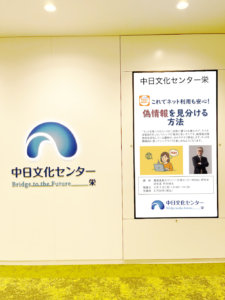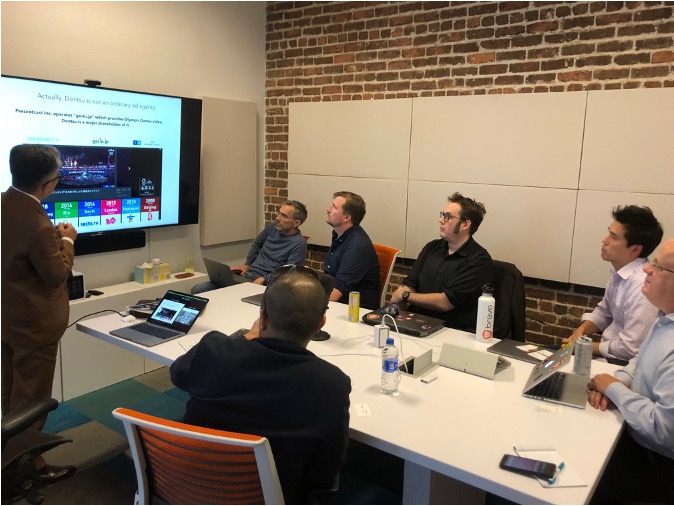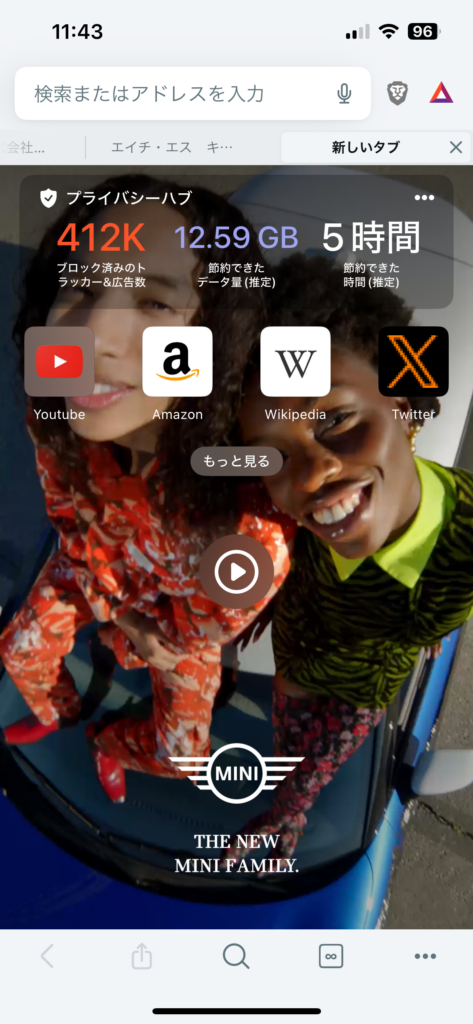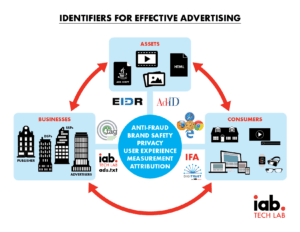以下の文章は、国会会議録検索システムにアーカイブされている「第7回国会 参議院 電気通信委員会 第3号 昭和25年2月1日」の議事録を転載したものです。
○公述人(吉田秀雄君) 私は日本電報通信社の社長で、現在東京放送会社の創立準備委員長であります吉田秀雄であります。今回の法案の最も大きな関心を呼んでおります点の民間放送の出願について、一二意見を申します。
放送法案の全体について見ますならば、立法の趣旨そのものは賛成であります。但し法案の内容が日本放送協会を規定する條項が多過ぎはしないか。従つて民間放送への規定が少な過ぎはしないか。つまり民間放送に対してこの法案をやや冷淡ではないかとこう考えます。更に放送協会に関する規定についてでありますが、私自身の意見もそうでありますが、民間放送の出願者は全体の考え方からいたしまして、この法案は放送協会の保護法案的な要素が多過ぎはしないかとこう考えます。
例えて言いますならば、土地収用法、先程仁科先生でありましたか、お話がありました。それから受信料の法定徴収、つまり聴取者市場というものをNHKに独占させ、更に三十億の放送債の起債というような條項、即ち放送協会の保護法規が多過ぎはしないかと、こう考えます。尤もその中で受信料の法定徴収つまり聽取者市場の独占ということはこの種の事業にありましてはこれは止むを得ぬことでありまして、有形物を授受するというような取引形態でない場合には或る特定のものにこれを徴収させるということはこれは止むを得ぬと思いますが、その恩典といいますか、聴取者市場はNHKに独占さすということになりますれば、その他の土地収用法とか放送債の起債というがごとき保護條項は私は必要がないのじやないかとこう考えます。
ただこれが今までのように日本の放送事業というものが放送協会一本であります場合にはそのような條項があつても差支えありませんが、法案の第一條にありまする放送による表現の自由、つまり放送協会以外の民間人にも電波の使用を許すということになりますならば、従来の放送協会つまりその中の特定のものだけにさような大きな保護法規を設ける必要はなかろうと、又設けることは第一條にある放送による表現の自由という面に圧迫を加えはしないかとこう考えます。
そこで個々の條項につきましての意見は、先程来小宮先生、江尻君その他からお話がありました。最初申上げました民間放送についてこの法案はやや冷淡ではないかという点について出願者の一人として申述べます。
先程仁科先生でありましたが、大体商業放送というものが日本の現在の経済情勢から言つて成立つかどうかということが問題ではないか。と言いますのは、放送による表現の自由というからには、NHK以外に民間放送が成立つということを前提にしなければならん。成立たないものを仮定して放送の自由ということになりますといこれはややNHKを保護するためにさような言葉を設けたとこういう嫌いがありますので、一番大事なことは民間放送が、商業放送が成立つかどうかということが恐らく今日御列席の各委員或いは傍聴者各位にとつて最も重大な関心事ではなかろうかと思います。
私出願者の一人としまして、又広告会社の責任者としまして、今回の民間放送が広告收入だけで賄つて行かるべき事業であるといろ建前から、広告専門業者としてこれを見ますならば、成立つとも言えますし、成立たぬとも言える。成立つという論拠は民間放送が許可されまして、東京、大阪、名古屋各地に放送を開始するわけでありますが、民間放送が広告収入だけで賄うということは、民間放送が製造放出する電波は全都これを利用しようとする者に売るということでおりますが、最も大きい需要者は勿論一般経済界つまり一般事業家、もう少し具体的に言いますならば、いわゆる広告主であると思うのであります。
その広告主が現在日本におきまして月額どの位の広告料というものを使つておるか、大体これは八億と我々の数字ではふんでおります。その中でどれだけのものが放送に、つまり電波を買うために使われるか、或いは広告放送に使われるか、日本にはその例はありませんが、アメリカの例で行きますと、大体一割二、三分つまり一億前後とこう考えられます。勿論アメリカは公共放送というものがなくて、全部が民間放送、而も長い間広告放送の経験なりテクニツク技術を体得して来て、今日全広告料の大体一割二、三分を広告放送に使つておるというのでありますが、仮りに同じ率を日本の広告生が使うとしまして、さつき申上げた数字から言つて月に一億、東京、大阪、名古屋その他の地区の仮りに十キロのパワーを持つた民間放送会社が月一体どのくらいの経費が要るか、大体我々の推算では一千五百万円としますと、この会社が一応経営上つうつうに行くためには一千五百万円の広告収入を必要とする。
つまり月産一千五百万円の電波製造をしなければならない。逆に言いますならば、一千五百万円だけの放送をしなければならない。こういうことになりますが、電波料金を一分間大体千円と現在我々は予定しておりますが、千円としまして一千五百万円の収入を挙げるためには毎日九時間も放送しなければならない。つまり九時間の電波時間を広告主に買つて貰わなければならない。
そうしますと大体広告主が提供します芸能の時間を十五分単位で考えまして、毎日九時間電波時間を広告主に買つて貰うためには、十五分単位としまして、月に千二百単位、つまり一つの広告主が月一回ラジオで広告する。十五分単位でそれをしますと、千二百の広告主を必要とするのであります。十五分の負担金は一分間大体千円としますと、十五分で一万五千円、それに芸能料が今のNHKは可なり安いようでありますが、(笑声)必然的に放送協会を含めて二会社以上の競争になりますから、大体ステージ料金も同じとしまして一万五千円、一軒の、広告主の負担すべき料金が芸能料を含めて一回三万円、月一回ずつ広告主が放送するとして広告主の数が千二百なければならんということになります。
恐らくこれはその意味ではできない。但し現在日本には月百万円以上の宣伝費を使つております広告主が百以上あります。従つてそれらの広告主が毎週一回ずつこれを使つて呉れますと、大体その広告主の負担が月十二万円、広告主の数は四分の一ですから三百であります。この三百というのはちよつと不可能だ。どうしても月に八回、つまり二十四万円負担してくれる広告主を百五十持つということでなければならない。これもややむずかしかろう。
こういうふうに見ておりますが、併しながら従来の広告主以外に例えば新聞社或いは保険会社、証券会社等もこの民間放送の時間を買いまして、例えば朝日新聞の時間としてその時間に朝日のニユースを放送する。或は山一証券の時間としてその時間に山一が時事解説をやるとか、経済解説をやるとか、継続利用する大企業者があることを前提として大体千五百万円の広告収入が挙るであろう、こう我々は目算をふんだわけでありますが、そこでできると申しますのは今言つた考え方、できないというのは現在の法案の内容から見ますと、一体幾つ許すか、民間放送を一地区幾つ許すかということは規定してありません。
その資格のあるものは幾つでも許すと、勿論その中には電波、日本が現在使用し得る中波の余つておる波長、或いはこれを割当てる上での技術の問題がありまして、そう余計にはできない、地区によりましては十二、三ではなかろうか、こういうことでありますが、仮りにこれが十二、三のものを東京に三つとか四つとか、大阪に二つ、三つとかいうことになつて来ますと、その僅かなさつき申しました全体の日本における全広告料の一割、つまり一億のものを各放送会社が分けておる次第でございますから、十できたとしますと平均して一千万円、これでは民間放送は立つて行かない、分取主義ならよいのでありますが、今まで日本で全然経営上の経験もなければ、又広告放送広告放送と言いましても、その技術についての経験というものも持たないで始めようというのに、最初から民間放送業者間に猛烈な競争、つまりコストを割つての競争が必ず出て参りますが、これをやつたならばいずれも潰れてしまう、成り立たない、それが成り立つというのは、取り敢えず各地区に一民間放送会社という建前であるならば成り立つが、そうでなかつたならば恐らく現在においては成り立たん、こう申上げるわけであります。
併し一地区に一民間放送ということが果してこの第一條の精神から言つてできるのであるかどうか、こう思うのでありますが、できないとしますならば、つまり民間放送が成り立たんということになりますならば、第一條の趣旨も或いは空文に終る。
成り立たすためには暫定的に一地区一放送会社ということにして、これに十分日本において初めての民間放送の経営なり、或いは広告放送の技術の経験を積ますということが必要ではなかろうか。何らかそういうことがこの法案の中にあつて然るべきではなかろうか、こう考えるわけであります。
先程古垣さんからもお話がありましたが、放送の競争が物事の進歩を促すというお言葉がありましたが、NHKという厖大な強力な組織、機構を持つたものを相手にしまして、民間の而も無経験の、又市場を全然別にしたつまり広告市場というものを、日本においては可なり未熟な貧弱な市場をその基盤としてやらねばならない民間放送が果してNHKと競争できるかどうか、恐らくこれは不可能だと申上げて差支ない。
まして況んやNHKを向うに廻わしながら広告市場というものの中で同業者が相競争し合うならば、むしろこれは最初から、さようなものを作らんにしくはなしというふうな状態になるのではなかろうか。
経営面におきましては、NHKは先程申上げたように、聽取者層の独占という最も有利な條件を持つており、民間放送は貧弱な広告市場の分取りという誠にみじめな経営基盤しか持ち得ない。
プログラムの面におきましては、一般聴取者はNHKの放送であろうが、或いは民間放送であろうが、面白い有益な放送を聴く。つまりプログラム面ではNHKと一騎打ちの競争をしなければならない。
経営面においては、先程言つたように全然段違いな差があるということになりますと、民間放送をお許しになると言いながら、果して許してもできるという前提に立つてお許しになるのか。
許してもできないから許して置けというお考えでこの中にお入れになたのか。これについてもう少し明確な規定をお願いしたい、こう考えるわけであります。
いろいろ申上げたいことはありますが、ただ先程古垣さんからお話がありましたNHKの経営委員会の問題でありますが、これは各地区別に有識経験者、而もそれを経済界、文化界、科学界から選ぶということになつておりますが、果してそういう器用なことができるかどうかということと。
それからNHKの経営にとつて最も重要である経営委員会というものの委員の報酬が無報酬だということ、これで真劔にNHKの経営をその委員の方々にお考え願えるかどうか、又貴重な時間を割いてNHKの経営に参加して頂けるかどうか、どういう御精神で無報酬にされたか、その点についても私は疑問があります。
又先程古垣さんからお話がありましたが、聴取料金を国会で決める、これも随分おかしな話で、これは電波監理委員会でお決めになつてよいのではないか、こういうふうに考えております。
個々の條文についても意見はありますが、要は民間放送についてもう少しこれは育てなければならん、育てて行くためには考慮しなければならんというような規定があて然るべきではないか、具体的には時間もありませんので申上げませんが、一般論として申上げた次第であります。






